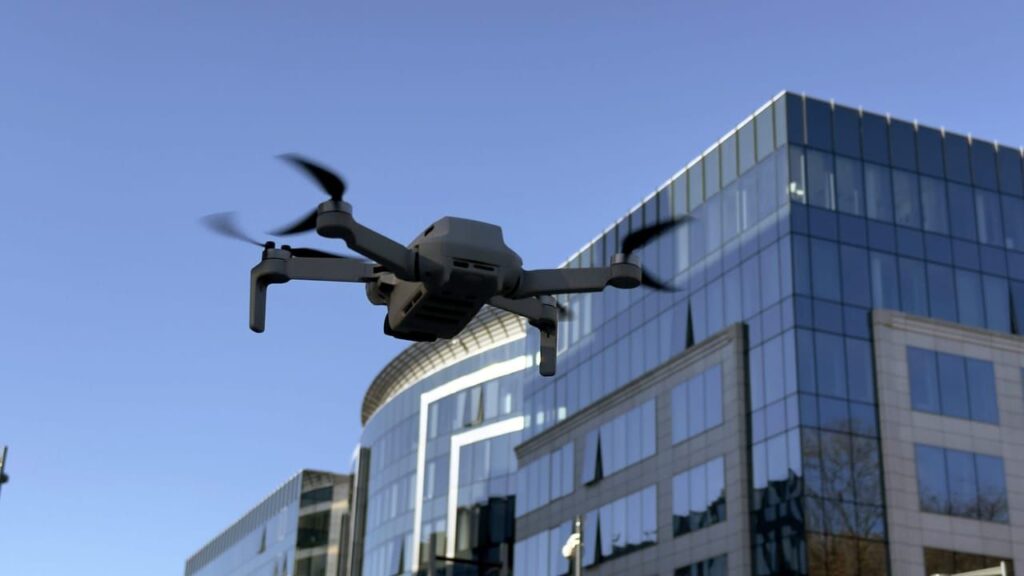LONDON — The United Kingdom has joined France and Germany in deploying military personnel and technology to Belgium to help counter a growing wave of drone incursions over key national infrastructure, amid rising European concerns about hybrid warfare linked to Russia.
British Support Confirmed
The UK’s Chief of the Defence Staff, Admiral Richard Knighton, told the BBC on Sunday that Britain would send an anti-drone team to Belgium to support operations around sensitive facilities, including airports, ports, and military installations.

Belgium’s Defence Minister Theo Francken thanked “our British friends” for the move, calling it “an act of European solidarity at a time when our security and sovereignty are being tested by shadow threats.”
Drone Incidents Spark Security Alert
Belgium has been on heightened alert after multiple drone sightings forced temporary closures of Brussels and Liège airports last week. Similar incursions were reported over the Port of Antwerp, one of Europe’s largest shipping hubs, and near several military bases.
No groups or individuals have claimed responsibility for the incursions, but Belgian intelligence agencies believe the drones may be part of a coordinated campaign targeting critical European infrastructure.
A Broader European Response
The decision to deploy UK personnel follows similar steps by France and Germany, both of which announced plans to assist Belgium with air defence specialists and anti-UAV (unmanned aerial vehicle) systems in recent days.
Belgium has also requested additional surveillance data and airspace monitoring support from the EU’s intelligence-sharing platform, as European authorities warn that drone-related incidents have tripled in recent months.
Suspected Russian Involvement
The European Commission described the wave of incursions as part of the “hybrid warfare tactics” allegedly used by Russia against the European Union. Moscow, however, denies involvement, calling the accusations “unfounded and politically motivated.”
Despite the denial, Belgian Defence Minister Francken said on Saturday that “Russia is clearly a plausible suspect,” echoing similar comments from Germany’s Defence Minister Boris Pistorius, who linked the drone activity to geopolitical tensions over frozen Russian assets.
Germany Links Drones to Russian Assets
At a press conference in Berlin on Friday, Pistorius said the incursions appeared designed to intimidate Belgium, which hosts the Euroclear facility, one of the largest financial clearing systems in the world, where billions in Russian assets are currently frozen under EU sanctions.
“This is a measure aimed at spreading insecurity, at fearmongering in Belgium: Don’t you dare to touch the frozen assets. This cannot be interpreted any other way,” Pistorius told reporters, according to Reuters.
Security and Economic Stakes
Belgian authorities believe the timing of the drone incidents coincides with ongoing discussions among EU leaders over using profits from frozen Russian assets to help fund Ukraine’s defence.
Security experts warn that any disruption to Euroclear’s operations could have global economic repercussions, as the institution processes trillions of euros in cross-border transactions each year.
Emergency Security Council Meeting
Following the incidents, Belgium’s National Security Council held an emergency session on Thursday, convened by Prime Minister Alexander De Croo. The meeting resulted in a plan to accelerate the launch of the National Air Security Centre, which will become fully operational by January 1, 2026.
The centre will oversee real-time airspace surveillance, inter-agency coordination, and response protocols against unmanned threats, integrating with both NATO and EU defence systems.
Coordinated European Defence
The joint operation involving the UK, France, and Germany represents one of the most visible demonstrations of military cooperation within the EU and NATO since the escalation of Russia’s war in Ukraine.
Defence analysts say the collaboration signals a shift toward collective air defence strategies, as European states grapple with the rapid evolution of drone warfare technology and cross-border interference.
Political Reactions
European leaders broadly welcomed the UK’s participation, describing it as a reaffirmation of shared European security, despite Britain’s exit from the EU.
The move is also seen as strengthening NATO’s internal coordination against unconventional and hybrid threats.
Francken called the alliance “proof that European democracies can and will stand united when their skies are violated.”
Russia’s Denial
Kremlin spokesperson Dmitry Peskov dismissed the accusations as “absurd propaganda,” claiming that Russia “has no interest in destabilising Belgium.” Moscow has frequently accused Western governments of “inventing hybrid warfare narratives” to justify increased military spending.
A Growing Pattern
This is not the first time drone incursions have disrupted European operations. Earlier in 2025, Finland, Sweden, and the Baltic States also reported suspicious UAV activity near military and energy facilities, prompting new joint air defence agreements within NATO.

Expert Analysis
European security analysts believe these drone operations are intended to test NATO’s detection capabilities, gather intelligence, and sow political unease.
The incursions, they warn, may also reflect a strategic shift toward electronic and psychological warfare.
Looking Ahead
Belgium’s intelligence services continue to investigate the origin of the drones, with assistance from EUROPOL and NATO command centres.
Meanwhile, Belgium’s airports have resumed operations under enhanced surveillance and temporary airspace restrictions.
Officials say the coming weeks will determine whether the incursions were isolated provocations or part of a broader campaign targeting Europe’s energy, financial, and defence sectors.
Editing by M10News International Desk | Contact: international@m10news.com
© 2025 M10News. All rights reserved. Unauthorised reproduction is prohibited.


